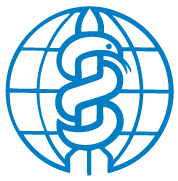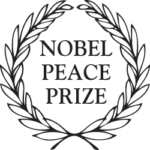“Physi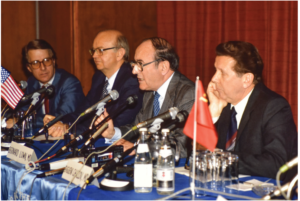 cians charged with responsibility for the lives of their patients and the health of the community must begin to explore a new province of preventive medicine, the prevention of nuclear war.”
cians charged with responsibility for the lives of their patients and the health of the community must begin to explore a new province of preventive medicine, the prevention of nuclear war.”
—Dr. Bernard Lown, IPPNW founding co-president, 1981
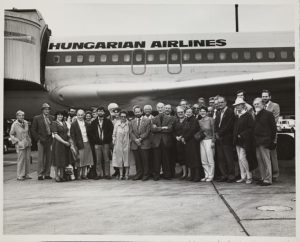
Founded in 1980, IPPNW was an inspiration born of the Cold War. With the world divided into two militarized camps poised on the brink of nuclear war, a small group of Soviet and American doctors took a leap of faith. They reasoned that their common interest in survival was more powerful than the ideological divides between them. They believed that their obligation as physicians included a common commitment to the prevention of nuclear war.
Led by co-founders Drs. Bernard Lown, Jim Muller, Eric Chivian and Herb Abrams of the US and Drs. Evgueni Chazov, Mikhail Kuzin and Leonid Ilyin of the Soviet Union, they organized a team to conduct meticulous scientific research based on data collected by Japanese colleagues who had studied the effects of the atomic bombs dropped on Hiroshima and Nagasaki. And they drew upon their knowledge of the medical effects of burn, blast, and radiation injuries.
The doctors sounded a medical warning to humanity: that nuclear war would be the final epidemic; that there would be no cure and no meaningful medical response. Their message reached millions of people around the world. In the words of former New Zealand Prime Minister David Lange, “IPPNW made medical reality a part of political reality.”
In its first five years, IPPNW, working closely with its US affiliate Physicians for Social Responsibility and IPPNW-Russia, educated health professionals, political leaders, and the public about the medical and environmental consequences of nuclear warfare. For this effort, which united physicians across the Cold War divide, IPPNW was awarded the UNESCO Peace Education Prize in 1984 and the Nobel Peace Prize in 1985.
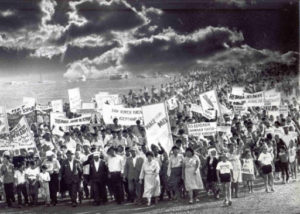
Throughout the 1980s and the 1990s, IPPNW comprehensively documented the health and environmental effects of the production, testing, and use of nuclear weapons. In a series of well-researched, authoritative books and numerous articles and op-ed pieces in medical journals and the popular press, IPPNW spelled out the tremendous price nuclear weapons states are paying in their pursuit of nuclear weaponry.
From uranium mining to nuclear testing and production, from Nevada to Moruroa and Hanford to Chelyabinsk, IPPNW and its affiliates collected and analyzed data that provides the public with a frightening assessment of the health and environmental costs of pursuing security through nuclear weapons.
IPPNW and its affiliates not only educated the public, they also organized citizens in the nuclear states to protest and change their governments’ policies. IPPNW believes that the active involvement of millions of people is essential if we are to prevent war and abolish nuclear weapons.
Physician activists were instrumental in the campaigns to ban atmospheric and underground nuclear test explosions and in helping to shut down nuclear weapons testing sites and production facilities.
As the Cold War came to an end, IPPNW had grown to comprise some 200,000 physicians, health care workers, and concerned citizens every region of the world.
In 2007, ICAN—the International Campaign to Abolish Nuclear Weapons—was launched by IPPNW and now has hundreds of partner NGOs in more than 100 countries. IPPNW is the lead medical NGO in this civil society campaign for a treaty to ban and delegitimize nuclear weapons, leading to their global elimination. ICAN received the 2017 Nobel Peace Prize for its role in achieving the Treaty on the Prohibition of Nuclear Weapons, which was adopted at the United Nations in July of that year. Read more about ICAN’s origins here.
